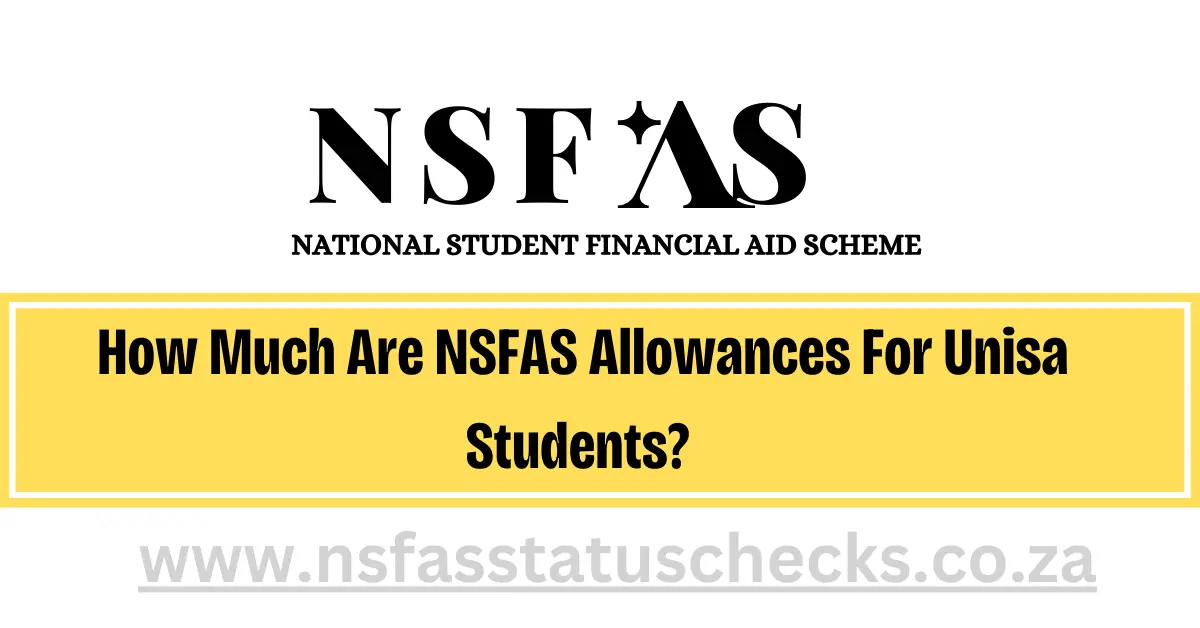The National Student Financial Aid Scheme (NSFAS) stands as a crucial support system for students pursuing higher education. However, a persistent issue has arisen in recent times, highlighting the delayed disbursement of NSFAS allowances, leaving many students in a precarious situation. This article is for those students who are Students Still Haven’t Received NSFAS Allowances.

Students Still Haven’t Received NSFAS Allowances
NSFAS, established to enable students from financially disadvantaged backgrounds to access tertiary education, plays a pivotal role in shaping the educational landscape. Its primary objectives include providing financial aid to eligible students, encompassing tuition fees, accommodation, and living allowances.
NSFAS Allowances: What are They?
NSFAS allowances are a lifeline for many students, covering various aspects of their academic journey. These allowances include funds for textbooks, accommodation, meals, and transportation. They are designed to alleviate the financial burden on students, ensuring they can focus on their studies without undue financial stress.
The Promise and the Reality
While NSFAS has consistently committed to disbursing allowances on time, the reality for many students has been quite different. Numerous reports and testimonials shed light on the struggles faced by students awaiting their allowances, impacting their ability to meet basic needs and participate fully in academic life.
Challenges in the Disbursement Process
Administrative challenges within NSFAS have been identified as a primary cause of delays. Issues such as verification processes, documentation requirements, and system inefficiencies contribute to the bottleneck in the disbursement process, creating frustration and uncertainty among students.
Impact on Students
The repercussions of delayed allowances extend beyond financial constraints. Students facing such delays experience heightened stress, anxiety, and, in some cases, compromised academic performance. The very purpose of NSFAS—to uplift students from disadvantaged backgrounds—can be undermined when timely support is not provided.
Government Initiatives and Solutions
Acknowledging the gravity of the situation, the government has initiated steps to address the challenges in the NSFAS disbursement process. These include system upgrades, increased funding, and collaborative efforts with educational institutions to streamline the entire process.
Student Advocacy and Voices
Students, through various channels, have been vocal about their struggles and concerns. Student unions and associations play a pivotal role in advocating for their peers, pushing for more transparent communication from NSFAS and demanding quicker resolutions to administrative issues.
The Role of Universities and Colleges
In recognizing the impact on their students, universities and colleges are actively collaborating with NSFAS to find solutions. Support systems, including emergency funds and counseling services, are being implemented to assist students facing financial hardships due to delayed allowances.
Addressing the Root Causes
NSFAS allowance disbursement delays are being identified and addressed. This includes a comprehensive review of administrative processes, technological upgrades, and the implementation of proactive measures to prevent future delays.
The Need for Transparency
Transparency is key to building trust among students and stakeholders. Improved communication regarding the disbursement process, timelines, and any challenges faced by NSFAS can help manage expectations and reduce anxiety among students.
Learning from International Models
NSFAS disbursement efficiency can be improved by exploring successful models in other countries. Adopting best practices and learning from the experiences of similar financial aid programs globally can contribute to a more effective system.
Future Outlook and Improvements
The future outlook for NSFAS allowances looks promising with ongoing initiatives and improvements. A commitment to addressing challenges head-on and creating a more student-friendly disbursement process is expected to yield positive outcomes for future beneficiaries.
Conclusion
The delayed disbursement of NSFAS allowances poses significant challenges to students striving for a better future through education. While efforts are underway to rectify the issues, a collective commitment from all stakeholders is necessary to ensure that no student is left behind due to administrative delays.
FAQs
Why are NSFAS allowances delayed?
NSFAS allowances face delays due to administrative challenges and verification processes.
How do delays in allowances affect students?
Delayed allowances lead to increased stress, and anxiety, and can impact academic performance.
How is the government addressing delays in NSFAS allowances?
Upgrades have been made to government systems, funding has been increased, and collaboration has been established with educational institutions.
How are students voicing their concerns about delayed allowances?
Student unions and associations play a vital role in advocating for students, bringing their concerns to the forefront.
Are there any ways we can ensure the disbursement process runs as smoothly as possible in the future?
Identifying and addressing the root causes, improving transparency, and learning from international models can contribute to a more efficient process.
